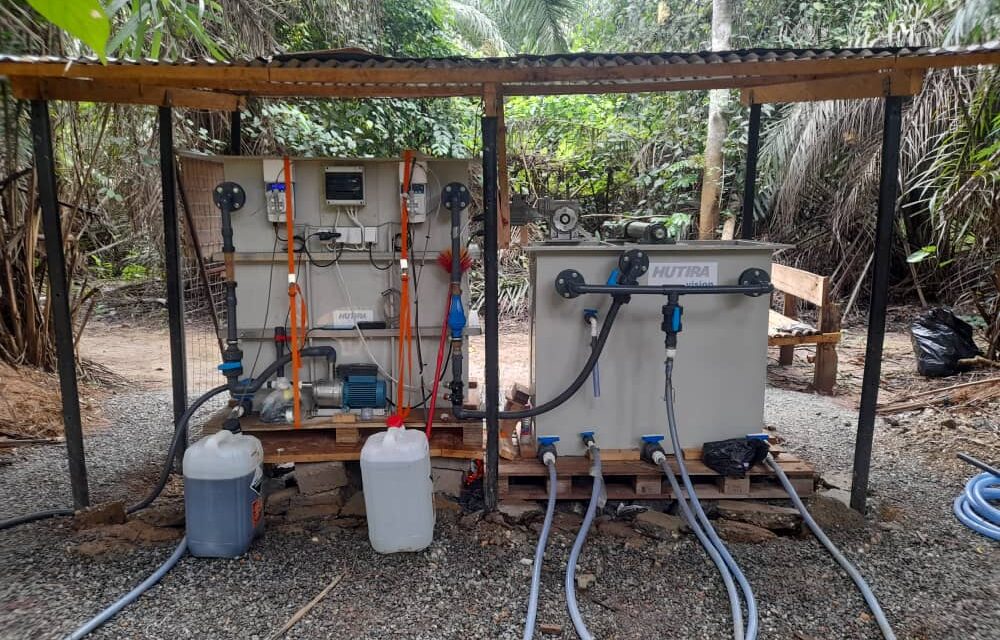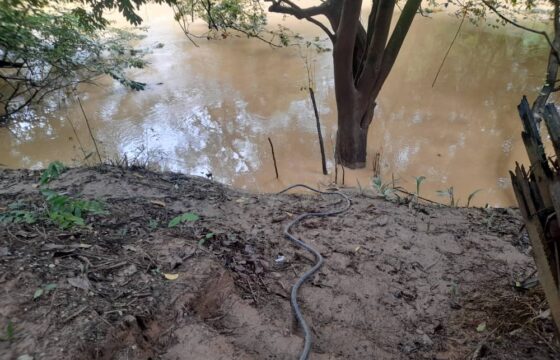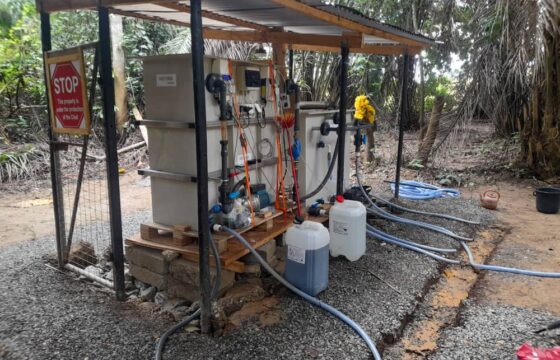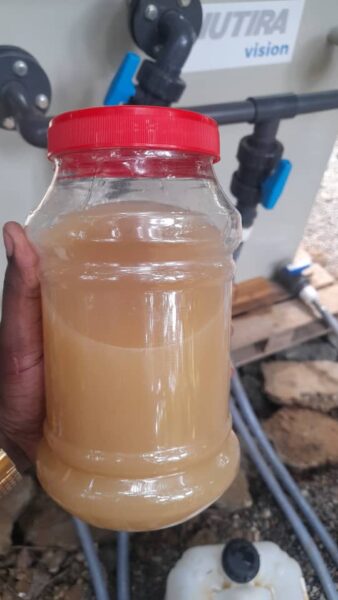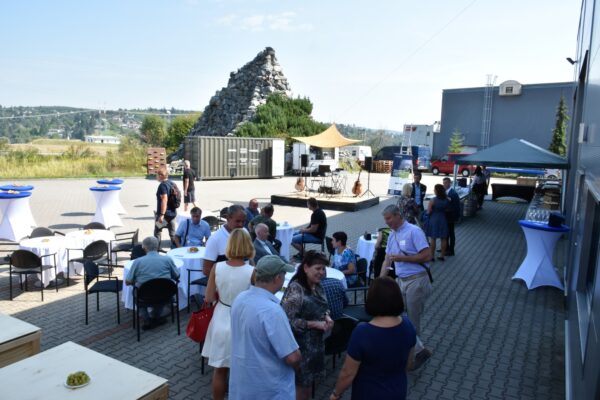13. 11. 2023
We are combating a shortage of drinking water. We built a test facility in Ghana, Africa, to design a container-based treatment plant for treating raw river water
We help where it is needed most. That’s why in Ghana we installed and commissioned the LaRa G01 CCW semi-operational plant, which was developed in cooperation with the Institute of Municipal Water Management and the Faculty of Civil Engineering of the Brno University of Technology. Thanks to these tests, which had to be carried out in view of the very poor quality of the river water, we are now able to design a comprehensive container-based water treatment plant. Once again, we see that our mobile container solution can help in many areas, especially humanitarian aid, crisis situations or areas affected by war.
Given current climate developments, securing sufficient drinking water for all is becoming a key challenge. According to climatologists, climatic changes in the Czech Republic could soon lead to weather similar to that in Croatia during the summer months, i.e. an average temperature of around 35 degrees Celsius. According to experts, a much longer period of drought can be expected, which will alternate with the opposite extreme – heavy rains and extreme storms. All this could lead to a significant reduction in the availability of drinking water.
“There are several ways to combat future water shortages, for example, by taking some preventive steps in the wild, building and expanding groundwater intake areas, or the way we are trying to help, by improving water treatment technologies,” says Petr Hajný, Director of HUTIRA’s Water Division.
As experts in renewable energy and water conservation, HUTIRA offers innovative solutions in the form of container-based water treatment plants. That’s why we are proud that our technologies help where they are needed most. One of our other major achievements is a container-based water treatment plant project in Ghana, Africa. Prior to the actual manufacture and delivery of the container-based treatment plant, a semi-operational plant called LaRa G01 CCW was built in cooperation with experts from the Institute of Municipal Water Management at the Faculty of Civil Engineering of the Brno University of Technology, and water treatment processes were successfully tested.
As part of the feasibility study, experts provided comprehensive analyses of the raw river water. Based on the pollution analysis, they then developed a technical solution for the water treatment plant, which was subsequently tested in semi-operational mode. After installing, commissioning and optimizing the plant on site, carefully planned testing was initiated. The results were then used to verify the technological design. “Our mobile semi-operational unit has proven to be effective even in extreme conditions, confirming the functionality of our technical design. Based on these results, we are sure that the proposed water treatment processes will work. We are thus able to design the final container-based water treatment plant much more efficiently,” says Hajný.
In addition to rapid deployment and flexible location, the emphasis is on the energy efficiency of these treatment plants. At a time when energy is becoming increasingly expensive and resources are limited, it is crucial to think about sustainability. This is why we design drinking water treatment plants to consume the least possible amount of energy, often using renewable resources. We can thus reduce operating costs while reducing the environmental impact.
After a successful test run, we are now starting work to produce a container-based water treatment plant that will help in the tropical belt of Africa. “The technologies we are designing and implementing today will be the cornerstone for future generations. We set ourselves the task of not only providing drinking water for today’s population, but also ensuring that water sources are protected and available for future generations,” says Monika Zitterbart, CEO of HUTIRA green gas and HUTIRA’s Director of Brand Marketing.
With this vision, we look to the future with hope and determination to continue researching and developing technologies that will bring sustainable drinking water solutions for all.
